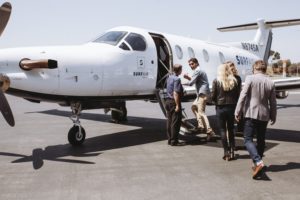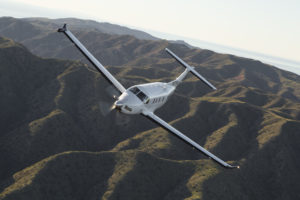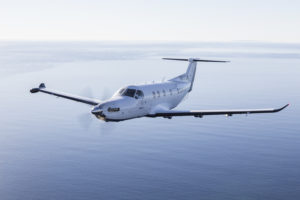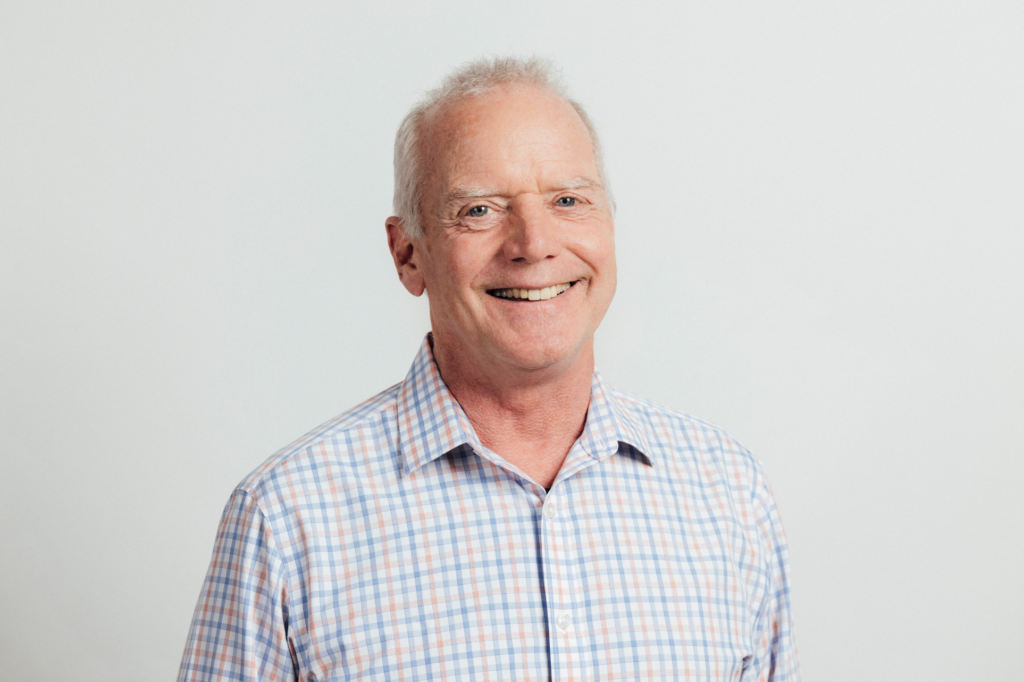Words Ben Sampson
Industry veteran and president of Surf Air Mobility Fred Reid explains the company’s strategy in this exclusive Q&A.
Founded in 2012, Surf Air is somewhat of an enigma in the aviation sector. The company is difficult to categorize. At different points in the firm’s history it has been labelled an air charter broker, membership-based aviation group, online charter marketplace and “semi-private” scheduled private flight provider.
The company bills itself as “tech-enabled”, an approach that initially translated to its use of a customer mobile app for booking flights, as well as a vision to open private aviation up to more people. More pragmatically, its focus has been on providing short-haul flights, primarily in California. The company expanded into Texas in 2017 with the takeover of local operator RISE, but failed to realize much of the promised growth at that time. Surf Air also had an ill-fated venture into Europe during 2017, operating routes between the north and south of the continent. The venture was ended after 18 months. Today, many Surf Air flights in the USA are operated by Advanced Air and its fleet of PC-12s.
Regardless of any missteps, the company has grown to be a presence in the aviation market. Last year it laid out its vision to disrupt the market further – principally by establishing short-haul regional networks of routes served by a mixture of hybrid-electric and traditional aircraft.
 In February the company acquired aviation marketplace Blackbird, renaming itself Surf Air Mobility in the process. It then bought hybrid-electric propulsion developer Ampaire. This was followed by a partnership with Textron announced during July. Part of that agreement covers the largest order ever for hybrid-electric aircraft –150 Cessna Grand Caravan EXs. Deliveries of the aircraft, which will initially be fitted with conventional engines before they are retrofitted to be hybrid-electric are expected to start in June 2022.
In February the company acquired aviation marketplace Blackbird, renaming itself Surf Air Mobility in the process. It then bought hybrid-electric propulsion developer Ampaire. This was followed by a partnership with Textron announced during July. Part of that agreement covers the largest order ever for hybrid-electric aircraft –150 Cessna Grand Caravan EXs. Deliveries of the aircraft, which will initially be fitted with conventional engines before they are retrofitted to be hybrid-electric are expected to start in June 2022.
Fred Reid, the president of Surf Air Mobility, was recruited during August last year from AirBnB. The appointment came shortly after Surf Air announced its intentions to go public and that it had raised US$200 million in funding to do so.
Business Airport International spoke to Reid about Surf Air’s activities, its future plans and its relationship with the business aviation sector.
Can you outline the company’s future vision?
Surf Air Mobility is accelerating the world’s path to zero emission travel. We want to improve the affordability, accessibility, and environmental footprint of aviation, beginning with hybrid electric, regional travel.
Our hybrid-electric technology will reduce fuel and maintenance costs, directly translating to lower costs for flyers. Plus by decreasing costs operators can add more frequency and fly to new destinations. This will unlock a new kind of point-to-point direct air travel network, massively expanding mobility for more people in more places. For business travelers, this opens up new commuter options for workers in communities across the US giving people more flexibility in where they work and live.
Does the company see itself as a market disruptor?
We’re reinventing flying through the power of electrification. While fully electric airplanes are the goal, it won’t happen all at once. We’re starting with hybrid-electric powertrains — a solution that will enable us to accelerate the first commercial deployment of hybrid-electric aircraft, as a first step toward all-electric powered airplanes.
By changing the cost structure and environmental impact of air travel, we intend to redraw the map of how and where we fly.
How do your acquisitions and partnerships show the company’s progress towards its goals?

We’ve developed a vertically integrated business model, as we feel it’s important to control all aspects of the aviation experience, from the technology and operations to customer experience, to accelerate the development and consumer adoption of electrification technology.
Our recent acquisitions and partnerships all contribute to our mission to bring hybrid-electric air travel to travelers around the world.
BlackBird expanded our consumer marketplace capabilities, allowing us to offer thousands of on-demand aircraft for virtually any mission profile. Ampaire’s hybrid powertrain technology is helping put us on a path to have the industry’s first hybrid electric powertrain FAA certified by 2024.
The exclusive relationship we entered into with Textron Aviation in July will significantly expand our fleet, which will be upgraded with our hybrid-electric powertrains. It’s the first time a major OEM has entered into a relationship of this nature.
How is Surf Air helping make aviation more environmentally sustainable?
By taking a practical approach and beginning with hybrid-electric technology. We are the only company with an existing air operation flying real travelers on regional routes that will benefit from electrification.
The new hybrid-electric powertrain for the Cessna Grand Caravan is on schedule to be certified by 2024. Once it is, we intend to make it available to operators both on and off our consumer platform and license our technology to OEMs for the broadest range of aircraft types possible. There are more than 60,000 eligible aircraft available for these upgrades worldwide, so our technology has the potential to have a massive impact on the industry.
Should business aviation see Surf Air Mobility as a threat?
We’re developing a technology and air travel network that provides new opportunities for all regional travel solutions, including business aviation. Upgrading the powertrains of our own fleet, as well as making that upgrade available to operators off our platform once certified, will give operators around the world the opportunity to reduce costs, increase flight frequency and expand to new routes that were previously commercially untenable.
Traditionally, business travelers have used Surf Air’s existing consumer service to fly daily routes across the West Coast and Texas. These routes, as well as further expansion into new markets, will be the first to enjoy the benefits of electrified aircraft.
How does Surf Air work with FBOs and operators?
 For our technology to have the largest impact, we are focused on getting it into the hands of other players in the industry as quickly as possible. In addition to making our electric powertrain upgrades available to interested operators off our platform, we are providing our technology to OEMs for new and existing aircraft — providing more operators with the opportunity to mitigate the environmental impact of their fleets.
For our technology to have the largest impact, we are focused on getting it into the hands of other players in the industry as quickly as possible. In addition to making our electric powertrain upgrades available to interested operators off our platform, we are providing our technology to OEMs for new and existing aircraft — providing more operators with the opportunity to mitigate the environmental impact of their fleets.
We are working closely with FBOs, airports, and charter operators to enable us to offer a new kind of air travel service that benefits consumer and suppliers alike.
Is Surf Air truly private aviation in the way most people would think of it?
Our aviation service was designed to maximize convenience and efficiency for travelers while minimizing its environmental impact. The biggest benefit of our service is the time savings and flexibility it offers travelers. Consumers that fly with us experience airports that are 99% less crowded than large commercial airports and on average spend 75% less time in the airport, saving them upwards of two hours on every flight.
As we transition to hybrid-electric powertrains, the maintenance and operations savings of the technology will allow us to expand to new routes, increase flight frequency and lower costs to flyers, while also reducing aviation’s carbon footprint. By focusing on time-savings and a premium travel experience that reduces stress and increases productivity, Surf Air will offer a new kind of personalized air travel that isn’t covered by traditional carriers and private aircraft operators.
What message would you like to give to the business aviation community?
Emissions from the aviation industry account for 5% of the world’s climate change problem and are expected to triple by 2050. It’s up to all the players in our industry to drive aviation towards cleaner solutions.
There is a huge opportunity and demand for hybrid electric aircraft to lead this transition, as the global market is expected to grow to US$178 billion by 2040. Our electrified powertrain technology stands to reduce the environmental, operational and maintenance costs of aviation, driving down costs for both business and leisure travelers and opening up new routes and flying schedules to consumers around the world.





